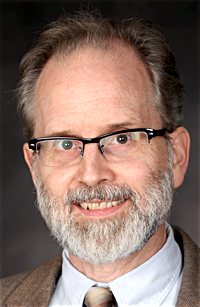
“It is shameful even to mention what the disobedient do in secret. But everything exposed by the light becomes visible — and everything that is illuminated becomes a light. This is why it is said: ‘Wake up, sleeper, rise from the dead, and Christ will shine on you.’” (Eph 5:12-14)
As a Church, we are collectively going through what seems like a very dark time, and I think that you sense, as I do, that we are not likely to get through it for some while. New waves of revelations come out. They include news about profound sins against God’s people: first, the sins against victims of abuse, who have felt they have had to privately carry the traumatic injuries and the displaced shame; and second, and more generally, sins against the faith and trust of the faithful.
These revelations have exposed the actions of some of our bishops, who have hidden things in the shadows rather than bringing them into the light, thereby seriously compounding the damage done to those victims and to our trust in the Church at large. They have also exposed conflicting accounts of individual and corporate culpability, which cast a shadow of doubt and confusion on us all. This all compounds the burden of our very many good priests and bishops who work with love and dedication to serve God and his people.
Yet, as dark as all of this seems and viscerally feels, it is important to remember that this “darkness” is not new, and we are actually experiencing the darkness being made visible. These present revelations are painful steps into the light.
When first reading some of the published details of the sexual assaults by clergy in Pennsylvania, I was nauseated, enraged and then a bit numb. I woke up in the middle of the night thinking of 1 Kings 18:40: “And Elijah said unto them, ‘Take the prophets of Baal; let not one of them escape.’ And they took them, and Elijah brought them down to the brook Kishon, and slew them there.”
There was a protective impulse in this fantasy: My feelings were “just.” But there was also an indulgence of my own brokenness: My own self-righteousness and hate were activated.
Each of us needs to have room for our own anger, our grief, our revulsion and our fear, as we try to journey from despair and rage into hope and faith, and from grief to grace. Meanwhile, each of us must heed the call out of the shadow of sin and into our own purification and conversion, so that we can individually and corporately — as the body of Christ — stand in the light, and then call our Church out of the shadow and into the light, whatever the cost.
“The shadow” is a powerful psychological and spiritual image. The shadow is the part of us that we want to disown. It can be composed of past injuries, immature ego states, character flaws, disowned needs, past misdeeds, disowned powers and gifts — all of which have not yet been confronted and integrated. Though not always sin itself, it inclines us toward sin. It is the parts of me, the parts of us, that we want to hide away. Until it is faced, owned and brought into light, what we hide in the shadow will not be redeemed and transformed.
It occurs to me that there are three main temptations we as Catholics face in these tumultuous times. Along with our temptation not to look at what hides in the darkness, there is also a dangerous temptation to believe the shadow’s assertion: that when the light begins to shine on it, looking at it will be our undoing, and that our own shadow — or the shadow of the Church’s worst sins — is a true identity. We need to bravely look at this temptation and walk through it if we are to heal. Last month’s “Magnificat” spoke to this with a quote from Simone Weil, a French philosopher and mystic of the last century: “The self (false self) is only the shadow which sin and error cast by stopping the light of God, and I take this shadow for a being.”
A third temptation is to distract ourselves by self-righteously focusing only on “their shadow,” instead of also reflecting on our own need for conversion and purification. That temptation may also be to become self-focused and thrash around in the darkness of our own fears and indignation, meanwhile forgetting to be aware of the injured and vulnerable around us, who may be in greater danger of being lost in this dark passage. Faith and hope need to light our way and help us strengthen each other.
In my work over many years as a psychologist, including my work with victims of criminal sexual behavior, I am no longer surprised by human sin and misdeeds. In my work with the Church, I am no longer surprised by its corporate desire to look away from its own shadow and to too quickly say, “It’s OK, we’ve handled it, trust us.”
And, after 60 years of being me, I am no longer surprised by my own failings, sins and blind spots as a husband, father, friend and psychologist. Alongside this, I have had the privilege of witnessing — in myself and others — that when we walk through our sin, shame and fear and into the light, we are no longer identified with our worst injury or deed. Such healing can be a moment of surprising growth and transformation, which can lead to the emergence of new gifts and capacities which had been hidden in the shadow.
Rather than praying as a Church that nothing more is revealed because it would overwhelm us, I would suggest we pray for the light to shine on all that has been kept in this shadow’s darkness.
May we come into light that can help us see and heal the wounds of all of our brothers and sisters in Christ’s body who have been sinfully and criminally injured, and who have been left to walk in a “valley of darkness” not of their own making. May we open ourselves to light that can reveal our sin and help heal the moral integrity of our Church in its capacity to live out its mission. May we receive light that can call us into our own growth as members of that body and illuminate new gifts within the Church — the laity and the clergy, women and men — as we seek new ways not just to protect, but also to authentically live out the Church’s mission.
Certainly, prudent and just measures need to be taken. An investigation conducted by lay experts in forensic investigation into the particular case of former-Cardinal Theodore McCarrick has been suggested, and it seems one very advisable and important first step. Such an investigation would need to have the complete freedom to follow the threads of that situation wherever they lead, even if that is to the pope himself. Each particular situation deserves such careful and fearless scrutiny, with professionally trained laity playing key roles. Men who have willfully violated the role with which they have been entrusted need to step down. But, simultaneously, we must resist our own worst, reactive impulses.
Right now, things are looking darker because the light is illuminating what has been hidden. In that sense, the reality is becoming painfully lighter. We are experiencing an illumination that can lead to better informed protections for the vulnerable, and to healing for those whose lives were darkened by criminal sin against them. It is a call for healing of what lies in the darkness for each of us.
And, it is an opportunity for transformation and the emergence of new gifts and ways of being Church together as clergy and laity if we can heed God’s call, as St. Francis did in the 13th century, to courageously and humbly “rebuild my Church.”
Ruff is the assistant director of human formation and staff psychologist at the St. Paul Seminary School of Divinity in St. Paul.




